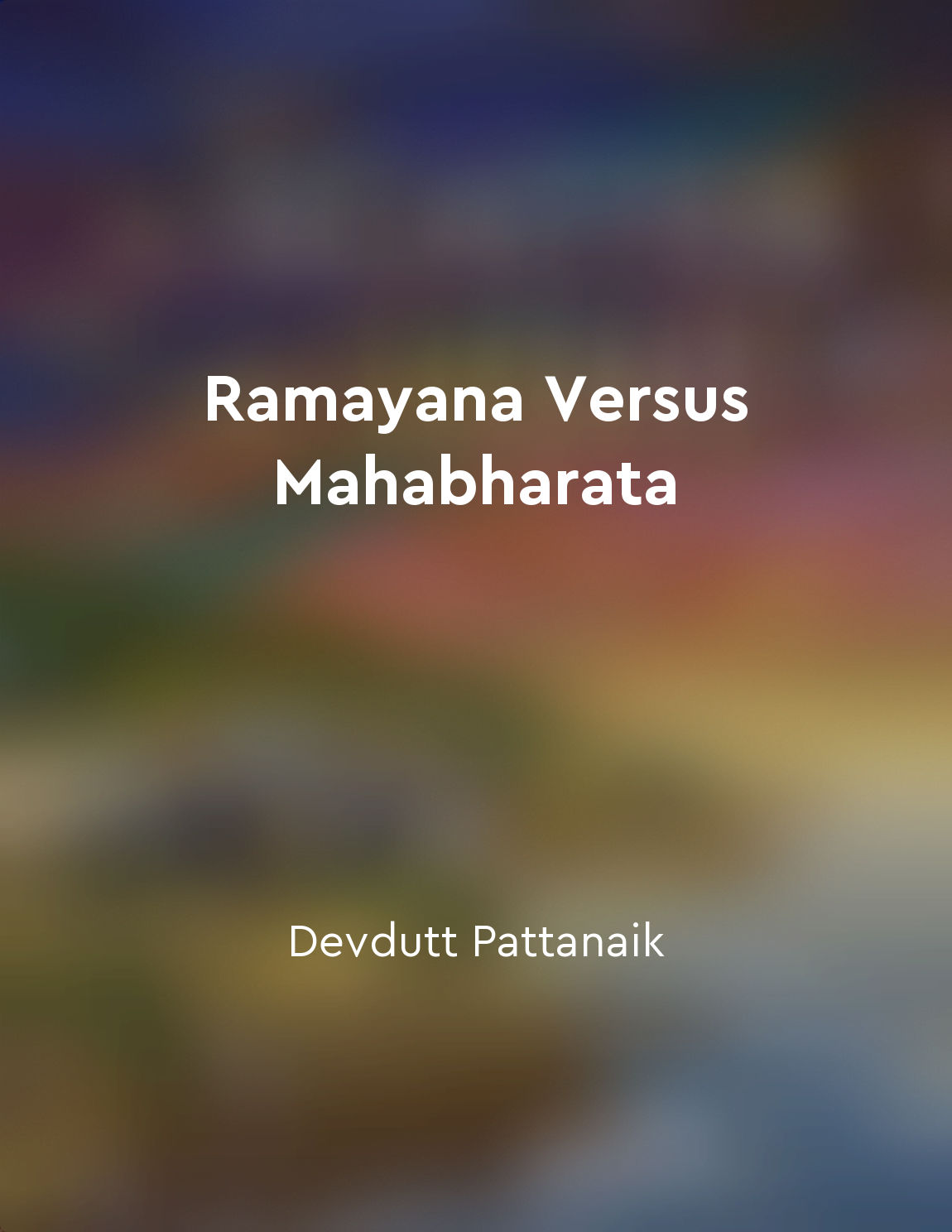The epics of Mahabharata and Ramayana are foundational texts in Indian culture from "summary" of A History of India by Romila Thapar
The epics of Mahabharata and Ramayana are foundational texts in Indian culture. They have shaped the religious, social, and cultural fabric of the Indian subcontinent for centuries. These epics are not just stories, but complex narratives that explore important philosophical and ethical questions. They provide a moral compass for individuals and communities, guiding them on the path of righteousness and duty. The Mahabharata, with its epic battle between the Pandavas and the Kauravas, delves into themes of dharma, karma, and the nature of power. It is a vast epic that encompasses a wide range of narratives, including the Bhagavad Gita, which is a philosophical dialogue between Lord Krishna and the warrior prince Arjuna. The Ramayana, on the other hand, tells the story of Prince Rama's quest to rescue his wife Sita from the demon king Ravana. It explores themes of...Similar Posts
Arjun ki dilema ki soch ko samjhein
Arjun ke man mein yeh sawaal tha ki yuddh karne se kya hoga, kya yeh sahi hai, kya isse koi labh hoga? Bhagwan Sri Krishna ne A...
Hanuman's selflessness and devotion inspire all
Hanuman, the mighty monkey warrior, is revered for his unwavering dedication and selfless devotion to Lord Rama. His actions an...

Ramayana is idealistic, Mahabharata is realistic
In the Ramayana, characters are portrayed as either good or evil, with little room for ambiguity. The ideals of dharma and righ...
Ideal ruler
In the epic Ramayan, the concept of an ideal ruler is exemplified through the character of Lord Rama. Rama is portrayed as the ...

Ramayana's Kaikeyi is manipulative, Mahabharata's Gandhari is sorrowful
In the epic Ramayana, the character Kaikeyi is portrayed as manipulative. She schemes to secure the throne for her son Bharata ...
The death of Dushasana and Draupadi's justice
Dushasana, the wicked Kaurava prince, met his end at the hands of Bhima during the great Kurukshetra war. Bhima vowed to kill D...
Ancient India
The events that took place in the Ramayan are set in a time long ago, in a land that was known by a different name. It was a ti...
Jeevan mein samarpan aur samarthan ka ana
The concept of 'Jeevan mein samarpan aur samarthan ka ana' is beautifully explained in the Shrimad Bhagwat Geeta. It emphasizes...

Ramayana is idealistic, Mahabharata is realistic
In the Ramayana, characters are portrayed as either good or evil, with little room for ambiguity. The ideals of dharma and righ...
Lessons learned from the epic Mahabharata
The epic Mahabharata is not just a story of a great war between two sets of cousins, the Pandavas, and the Kauravas. It is a tr...
